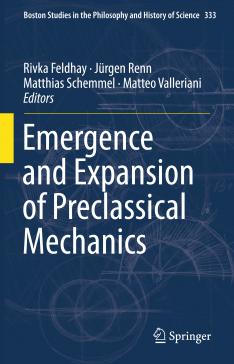This book aims to introduce a systematic framework for the historical representation and analysis of preclassical mechanics from a historical-epistemological perspective. Preclassical mechanics is understood here as a heterogeneous knowledge system emerging in the period roughly between the fifteenth and the seventeenth centuries, before classical mechanics was formulated, in continuation of Newton’s work, as a coherent and comprehensive mechanical theory. Preclassical mechanics is characterized by the investigation of problems, often resulting from disparate technological challenges, that were at first isolated from each other. In the course of their exploration by a growing community of engineer-scientists, the solutions to these problems increasingly cohered within a broad intellectual framework. The distinctive cognitive and social architecture of this intellectual framework of preclassical mechanics is analyzed in the contributions to this volume. Classical mechanics, as we shall argue, emerged from the tensions within this framework in a process of the reorganization of the knowledge accumulated in the period of preclassical mechanics, while the community of its practitioners became part of a new social world.

Publication
Emergence and Expansion of Preclassical Mechanics
- Working Group Volume
- Rivka FeldhayJürgen RennMatthias SchemmelMatteo Valleriani
- Dept. Renn
